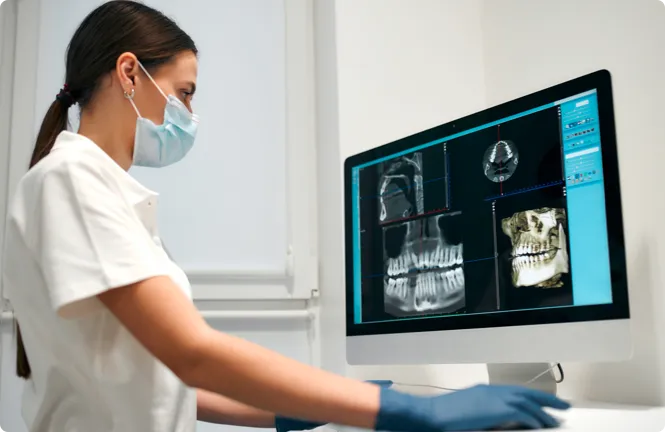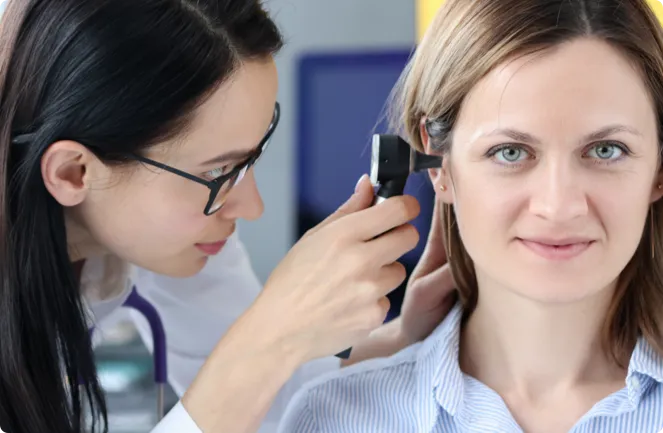



Snoring and Sleep Apnea: What Are They?
Snoring is a common problem that affects many people and can significantly impact the quality of sleep. It occurs when the flow of air through the mouth and nose is partially blocked, causing the surrounding tissues to vibrate. While snoring might seem harmless, it can be a sign of a more serious condition known as sleep apnea.
Sleep apnea is a sleep disorder characterized by repeated interruptions in breathing during sleep. These pauses, known as apneas, can last from a few seconds to minutes and may occur 30 or more times an hour. This leads to disrupted sleep and lower oxygen levels in the blood, which can result in excessive daytime sleepiness, irritability, and difficulty concentrating. Over time, untreated sleep apnea can lead to more severe health issues, such as high blood pressure, heart disease, stroke, and even diabetes.
For those living in Dubai and facing these issues, it's essential to understand that effective treatments are available. Consulting a Sleep Specialist in Dubai can be the first step towards better sleep and overall health.
Diagnosing Snoring and Sleep Apnea with a Sleep Study
When snoring becomes chronic or is accompanied by symptoms like excessive daytime sleepiness, it's crucial to seek a professional evaluation. The most accurate way to diagnose sleep apnea and other sleep disorders is through a sleep study.
A sleep study, or polysomnography, is a non-invasive, overnight test that records various physiological parameters while you sleep. This test is typically conducted in a sleep lab, though home-based sleep studies are also available for some patients. Book your Sleep Study Appointment
What Happens During a Sleep Study?
During the sleep study, sensors are attached to your body to monitor:
- Brain Activity (EEG): Tracks your sleep stages and identifies any abnormalities in sleep patterns.
- Eye Movements (EOG): Detects REM sleep, which is crucial for a complete sleep cycle.
- Muscle Activity (EMG): Monitors muscle tone and any movements that occur during sleep.
- Heart Rate (ECG): Records your heart's activity throughout the night.
- Breathing Patterns: Observes how well you breathe while sleeping and checks for any interruptions.
- Oxygen Levels: Measures the oxygen saturation in your blood to detect any drops during apnea episodes.
This comprehensive data allows the sleep specialist to determine if you have sleep apnea or another sleep disorder and how severe it is. Schedule an Appointment
Treatment Options for Snoring and Sleep Apnea
Once the sleep study results are analyzed, your sleep specialist will discuss the findings with you and recommend the most appropriate treatment plan. The treatment for snoring and sleep apnea can vary depending on the severity of the condition.
1. Lifestyle Changes and Snoring Remedies
For mild cases of snoring or sleep apnea, lifestyle changes may be recommended as a first step. These can include:
- Weight Loss: Excess weight, particularly around the neck, can put pressure on the airway, leading to snoring and apnea.
- Sleep Position: Sleeping on your back can cause the tongue and soft tissues to collapse to the back of the throat. Side-sleeping can help keep the airway open.
- Avoiding Alcohol and Sedatives: These can relax the muscles of the throat, increasing the likelihood of airway obstruction.
- Nasal Strips or Dilators: These can help improve airflow through the nose.
2. Continuous Positive Airway Pressure (CPAP)
For moderate to severe sleep apnea, the most common treatment is CPAP therapy. CPAP involves wearing a mask over the nose and/or mouth during sleep. The mask is connected to a machine that delivers a continuous stream of air, keeping the airway open and preventing apneas.
3. Oral Appliances
Oral appliances, similar to mouthguards, can be an effective alternative for some patients. These devices work by repositioning the lower jaw and tongue to keep the airway open during sleep.
4. Surgical Options
In some cases, surgery may be necessary to correct physical abnormalities that contribute to snoring and sleep apnea. Surgical options can include:
- Uvulopalatopharyngoplasty (UPPP): Removal of excess tissue from the throat to widen the airway.
- Tonsillectomy or Adenoidectomy: Removal of the tonsils or adenoids if they are blocking the airway.
- Implants or Injections: Stiffening the soft palate to reduce snoring.
5. Lifestyle and Behavioral Therapy
In addition to medical treatments, behavioral therapy may be recommended to help you adjust to new sleep habits and improve sleep hygiene. This can involve working with a sleep therapist to develop strategies for better sleep and managing sleep apnea symptoms.
Comprehensive Care at Tarabichi ENT
At Tarabichi ENT, we understand the impact that snoring and sleep apnea can have on your life. Our team of experienced Sleep Specialists in Dubai is dedicated to providing personalized care and effective treatments to help you achieve better sleep and improve your overall health.
We offer a full range of services, from diagnosing sleep disorders with state-of-the-art sleep studies to providing customized treatment plans tailored to your needs. Whether you're seeking snoring remedies or advanced Sleep Apnea Treatments, our specialists are here to guide you every step of the way.
Consult a Sleep Specialist Today: Don't let snoring and sleep apnea disrupt your life. Book a consultation with our sleep specialists at Tarabichi ENT and take the first step towards better sleep.











